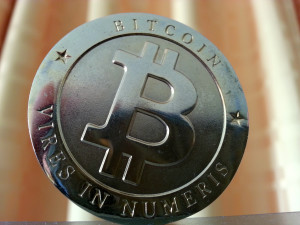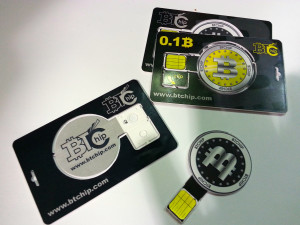Credit cards have become so ubiquitous in our daily lives we barely notice when we use them to complete a transaction. An alternative currency is stretching its wings to give those credit cards a run for their money, but will it win out? What will credit look like over the next decade or two. With new technology, digital payments are changing the way we view transactions. BitCoin, a new ‘alternative currency’ is making inroads as not only an electronic currency comprised of bits rather than cash or credit cards. Recently controversy surrounding BitCoin has shown that not only is there excitement surrounding the digital currency but that merchants are beginning to take it more seriously. It’s a huge breakthrough as adoption of the payment platform takes shape and increases in acceptance.
How Digital Currencies Work: Crypto Currency as it is known is really just an Algorithm or software that calculates bits or strings of data to encrypt that data for security purposes and other algorithms to facilitate the transfer of those currency bits from one account to another. With BitCoins there is also something called the block chain which is a chronological account of every transaction designed to prevent double spending and reflect accurate balances. With cryptography based currency there are no interchange rates, rather a small fee to process transactions. In fact, most transactions are free unless they involve many addresses or a higher priority in the block chain is requested. For the most part person to person transfers require no transaction fees. Electronic wallets are used to transfer digital currency from one electronic wallet ‘address’ to another wallet address. Digital wallets can have multiple addresses to conduct transactions and users can have multiple electronic wallets. The electronic wallet is a lot like cash in that should a user forget their password they lose access to those coins and they are forever lost, like losing cash in a fire or dropping coins into the ocean.
One added benefit to the customer is a single transaction receipt. No more waiting for a credit card statement to arrive and have to reconcile records, there is one record of the transaction and that usually stays in the digital wallet as well as a history of transactions made using that wallet.
How Will Electronic Currency Proliferate?

BitCoin
If Africa and India are any clue, person-to-person or phone-to-phone payments will take off in the United States. Cryptographic applications will ensure secure storage of the currency on a phone and securing payment transactions when sending or receiving the currencies. The technology is transparent to the customer and make payments easy, flexible, fast and secure. This ease and comfort level is expected to drive merchant adoption and as merchants will save money on transactions they may provide incentive to use those payment methods.
Virtual Currency Redefine Value: Virtual currency being a proxy for value can vary, especially short term, but newer currency alternatives are not tied to a specific currency or item such as precious metals like gold or silver. This decentralized nature is at the heart of its value. In the case of BitCoin, no one can manipulate the currency. Especially governments. There are a limited amount of coins and those coins have stability built in as they are released into the system.
Many view virtual currency as a form of gift card or loyalty program like airline miles. When seen in this light, ventures like amazon coins and in game points are seen as a form of virtual currency but those are centralized and controlled by the vendors providing them. When they are not viewed in this light they fall into the category of a Money Services Business or MSB and are held to the BSA or Bank Secrecy Act. These were put in place to curtail money laundering schemes, preventing nefarious users of a virtual currency (or any other) from laundering money into a virtual currency that is harder to track. It’s important to note that users of virtual currencies is not treated as a MSB.

